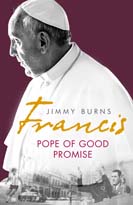While writing Hand of God, my biography of Maradona , I recall Carlos Bilardo , telling me about the World Cup in Mexico 1986: “There was Diego, and then there was the rest of the team.”
Bilardo considered Maradona an exceptional creative talent that required a completely different and indeed very privileged handling to any other member of the squad. Bilardo’s indulgence included allowing Maradona to stay up later than others, be surrounded by his own clan of friends , hangers on, and relatives and deal with his own personal life as he thought fit.
While no evidence has been produced he took drugs in Mexico, by 1986 Maradona had already walked very much on the wild side in Barcelona and Naples with a looming paternity suit looming over him back in Italy. Maradona went on to win the World Cup for Argentina . That World Cup will always be remembered as the high point of his unrivalled genius.
Undoubtedly Messi came to Brazil with a cleaner personal image but for a case for unpaid tax taken against him by Spain’s Inland Revenue and a brief spell of uncontrolled nightlife with Ronaldinho and Deco prior to Guardiola taking over as manager- a problem Pep quickly fixed , by reading the riot act. Either Lionel quit partying and focused on his football (and training) or he would never be as good as Maradona, was what Guardiola told Messi.
The parallels between Maradona in Mexico 1986 and Messi in Brazil 2014 is that they both had managers who believed they have special status which required special treatment on the field as well as off it. Both Bilardo and Sabella built teams around their VIPs with the rest of the players playing the role of a supportive if functional cast .
The main difference was one of outcomes: while in Mexico Argentina had by the quarter final stage with England wowed people with the brilliance of Maradona and how much the team owed to him, Messi was in shadow through much of the tournament in Brazil , including the final where a run-down the wing petered out like a damp firework, and he fluffed a crucial free-kick.
By contrast it was the supportive cast of Argentina’s defence held together by the de facto commander and heroic Mascerano (as opposed to the de jure captain and evidently diminished Messi) and the auxiliaries Higuain and, until his injury , Di Maria , that delivered for Sabella. All of this may have proved academic if Messi had scored or contributed to an Argentine victory in the final but the fact was that he didn’t.
Instead Argentina were justly beaten by worthy champions Germany that showed skill, flair and determination as a unit, showing that their manager had learnt from the heyday of quick-passing attacking La Roja but also how to improve on it .
The result was a crestfallen Messi, knowing he had failed to deliver and reluctant to accept the Golden Ball which Maradona had claimed had only been awarded on the basis of money (Messi as the iconic Adidas player) . How different and sweeter would Messi had felt had Argentina won the World Cup in Brazil.
It will now be up to Barca’s new manager Luis Enrique to try and rescue Messi from the dark hole he must now find himself and prove that with Suarez and Neymar, and a new intake of foreign young home-grown players in other key positions , along with the likes of enduring veterans like Pedro and Iniesta and Busquets , FC Barcelona can also return to glory days. Johan Cruyff believes the ego-studded Messi/Suarez/Neymar trio –bite or no bite- is a disaster waiting to happen. We shall see. Watch this space.


Comments